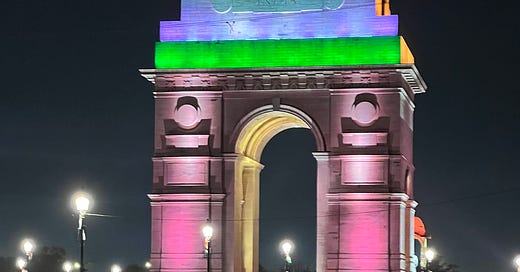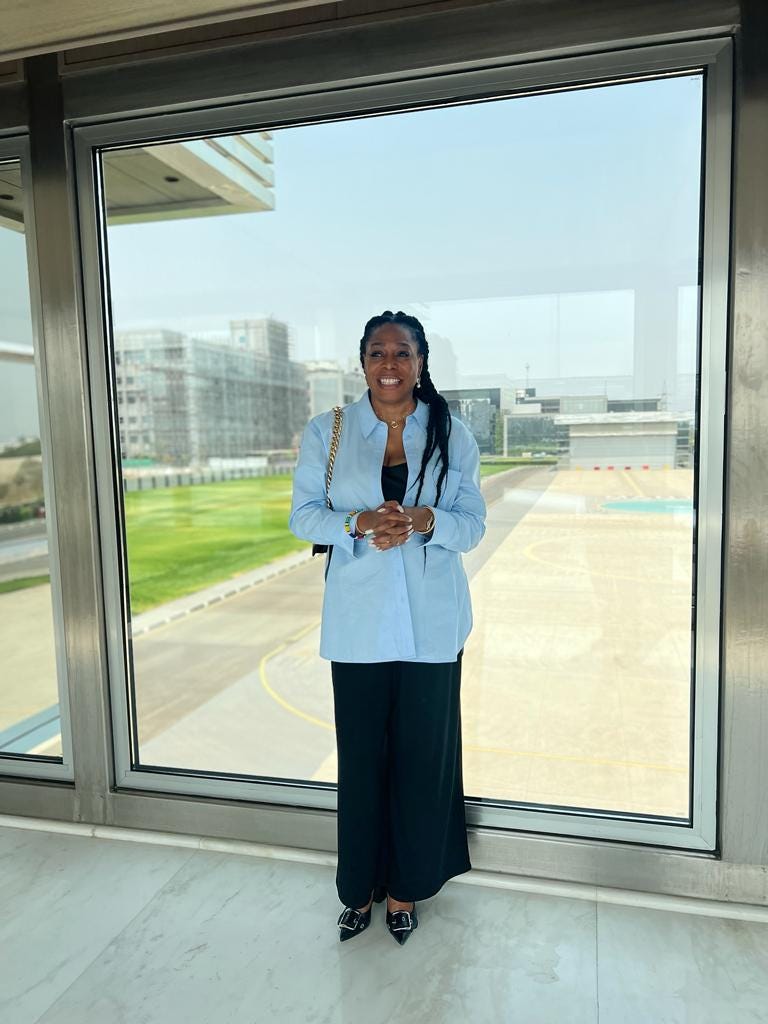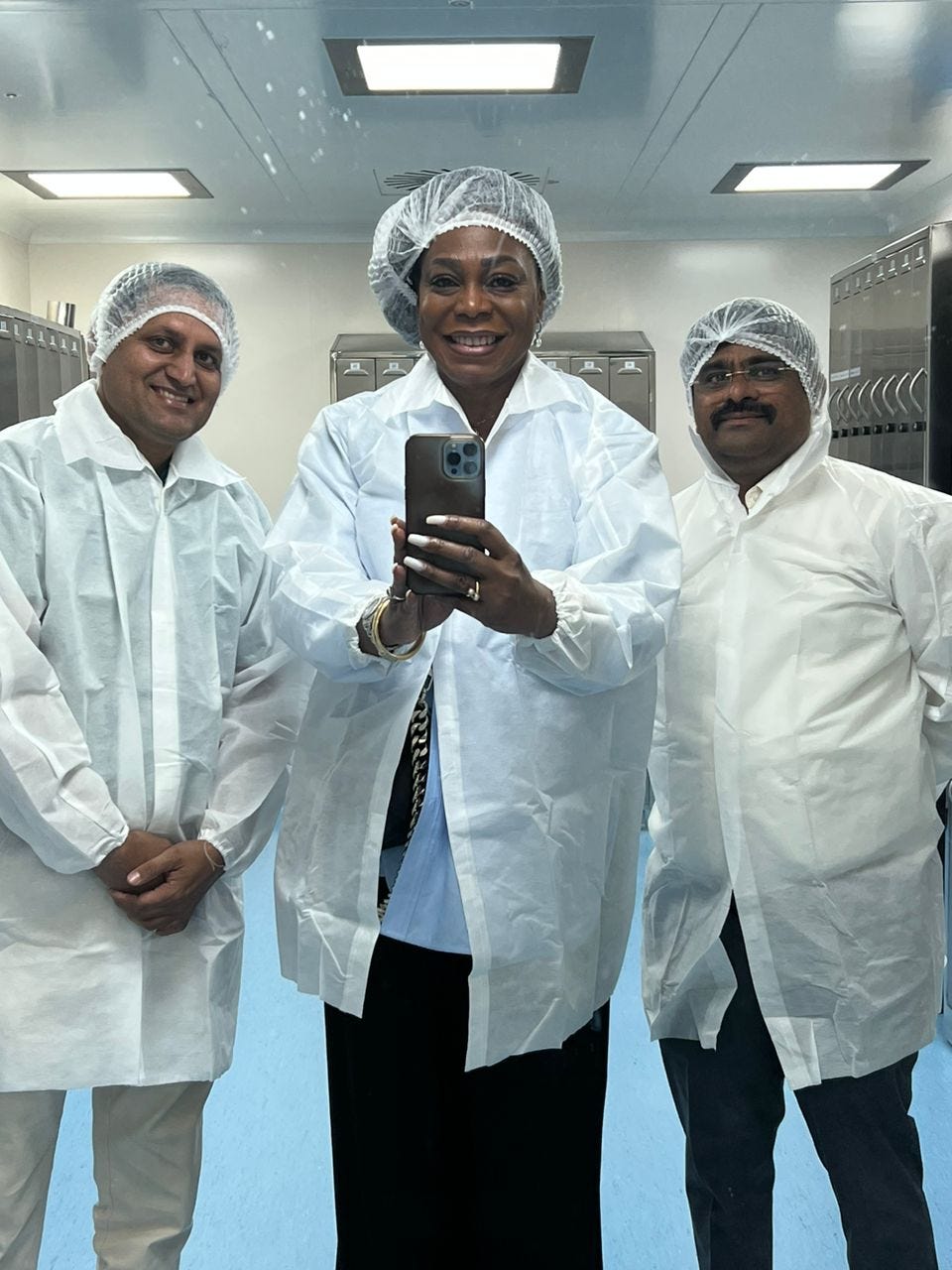India Reflections: Raisina Dialogue 2023
In the year of India's G20 presidency, the nation is truly showing up as a global leader. Its contributions to the world, whether it's through its advanced technology, robust infrastructure, or innovative approach to rural development, have positioned India as a key player in the international community. Against this backdrop, the Raisina Dialogue serves as a timely and vital platform for the exchange of ideas and perspectives, not just for the global south, but for the world. As we gathered here, I was reminded of the importance of South-South cooperation and the need for more voices from the global south to be at the center of solutions to the world's most pressing challenges.
New Delhi, the city where the conference was held, is the beating heart of the global south, where the world's most pressing issues find a voice. It is a city that pulsates with the rhythm of the global south, where ancient history meets modern innovation, and tradition blends seamlessly with innovation. As global leaders come together for the Raisina Dialogue 2023, the vibrant streets of New Delhi are alive with the sounds, smells, and sights of a rich and diverse culture. It is a city that embodies the spirit of the global south, and it never fails to surprise and inspire.
As I walked through the streets of New Delhi, I couldn't help but marvel at the city's splendor. Its rich cultural heritage, stunning architecture, and bustling streets were a feast for the senses. I felt deeply moved by the city's vibrancy and diversity, and I knew that this was the perfect place for me to discuss geopolitics and geoeconomics in the global south.
It is essential that our voices, the voices of the global south, are at the center of global solutions, but especially solutions to challenges more acutely faced by nations of the global south. We know our own struggles and triumphs better than anyone, and it is only through South-South dialogue that we can ensure that our perspectives are heard and our solutions are implemented.
As someone who is deeply passionate about the intersection of technology and social impact, I was thrilled to participate in the Bytes of Promise session at the Raisina Dialogue 2023. The conference provided an opportunity to discuss the vital role of technology in advancing food security, pandemic preparedness, human development, rural development, and security in Africa. From leveraging artificial intelligence to harnessing the power of big data, there are countless ways that we can use technology to create a better world for all. The critical role of technology in shaping our future cannot be overemphasised. For technology to truly work for us, it must empower all people, especially women, who have historically been excluded from the benefits of technological advancements. We need to ensure that women have access to technology and the skills needed to use it, so they can participate fully in the digital economy.
India's leadership in the global south has been notable in many areas, including vaccine production, infrastructure, technology, and rural development. India's ability to produce affordable vaccines, including those for COVID-19, has been critical in ensuring equitable access to vaccines in many countries. India's large pharmaceutical industry and skilled workforce have enabled the country to manufacture vaccines on a massive scale, and its diplomacy has allowed it to share these vaccines with other countries in need.
In terms of infrastructure, India has made significant investments in the development of its road, rail, and air networks. The country's National Highways Development Project and Golden Quadrilateral project, for example, have helped to connect major cities and promote economic growth. India has also made strides in the adoption of technology, particularly in the area of digital payments. The government's push for digitalisation has helped to reduce corruption and improve financial inclusion, particularly in rural areas.
India's experience in rural development is also noteworthy. The country has implemented several programs aimed at reducing poverty and promoting sustainable development in rural areas. The Mahatma Gandhi National Rural Employment Guarantee Act, for example, guarantees a minimum of 100 days of wage employment per year to rural households. The Pradhan Mantri Gram Sadak Yojana aims to connect all rural habitations with all-weather roads.
These achievements offer valuable lessons for Africa. For example, Africa could benefit from India's experience in vaccine production and diplomacy to ensure equitable access to vaccines for its citizens. Similarly, Africa could draw inspiration from India's investments in infrastructure and technology to promote economic growth and reduce poverty. Finally, Africa could learn from India's rural development programs to address the challenges of poverty and underdevelopment in its own rural areas.
To achieve these objectives, Africa needs to build stronger partnerships with India. By working together, Africa and India can share knowledge, expertise, and resources to promote mutual development. India's experience in vaccine production, for example, could be harnessed to help Africa develop its own vaccine manufacturing capabilities. Similarly, India's expertise in digital payments could be leveraged to promote financial inclusion in Africa. Through such partnerships, Africa can unlock its full potential and become a leading player in the global south.
I had the incredible honor of visiting Serum Institute: Pune, the world's largest producer of vaccines. Witnessing firsthand the dedication and innovation behind their work was truly inspiring. Africa can learn so much from India's capacity to produce vaccines for its population and export to the world. The scale of operations, the level of automation, and the professionalism I witnessed there made it even more real to me the level of work required for Africa to produce its own vaccines cheaply enough for it to make any economic sense.
Seeing this operation that has produced over 1.5 billion doses of life-saving vaccines was humbling, to say the least. It made me realise just how much work Africa still needs to do to produce its own vaccines at scale and at an affordable cost. We must take development more seriously and invest in the kind of infrastructure and technology needed to support large-scale vaccine production.
But the visit to Serum Institute also filled me with hope. It showed me what's possible when we invest in science, innovation, and global collaboration. I believe that South-South dialogue is key to ensuring that all nations have access to life-saving vaccines. Africa can learn so much from India's capacity to produce vaccines for its population and export to the world. We must work together to create more transformative partnerships like this one, to address the pressing challenges of our time.
For too long, Africa has relied on imported vaccines, leaving us at the mercy of global supply chains. But with the expertise and capacity of world-class vaccine manufacturers like the Serum Institute, we can turn the tide and become self-sufficient in our vaccine production.
It is essential that African leaders step up and take development more seriously. We are still far behind when it comes to the kind of infrastructure and technology needed to support large-scale vaccine production. Witnessing the production of life-saving vaccines at the Serum Institute was awe-inspiring. India's contribution to global health cannot be overstated, and I hope to see more partnerships between India and Africa to advance vaccine manufacturing capacity on our continent.
In the end, the Raisina Dialogue 2023 was more than just a conference. It was a platform for the exchange of ideas, insights, and perspectives from around the world. It reminded me that our voices in the global south are essential to the solutions of global challenges, and that together we can build a brighter future for all.
As I leave New Delhi, I carry with me a sense of hope and inspiration. The world needs more transformative partnerships like those between India and Africa, and I am excited about the possibilities that lie ahead.





